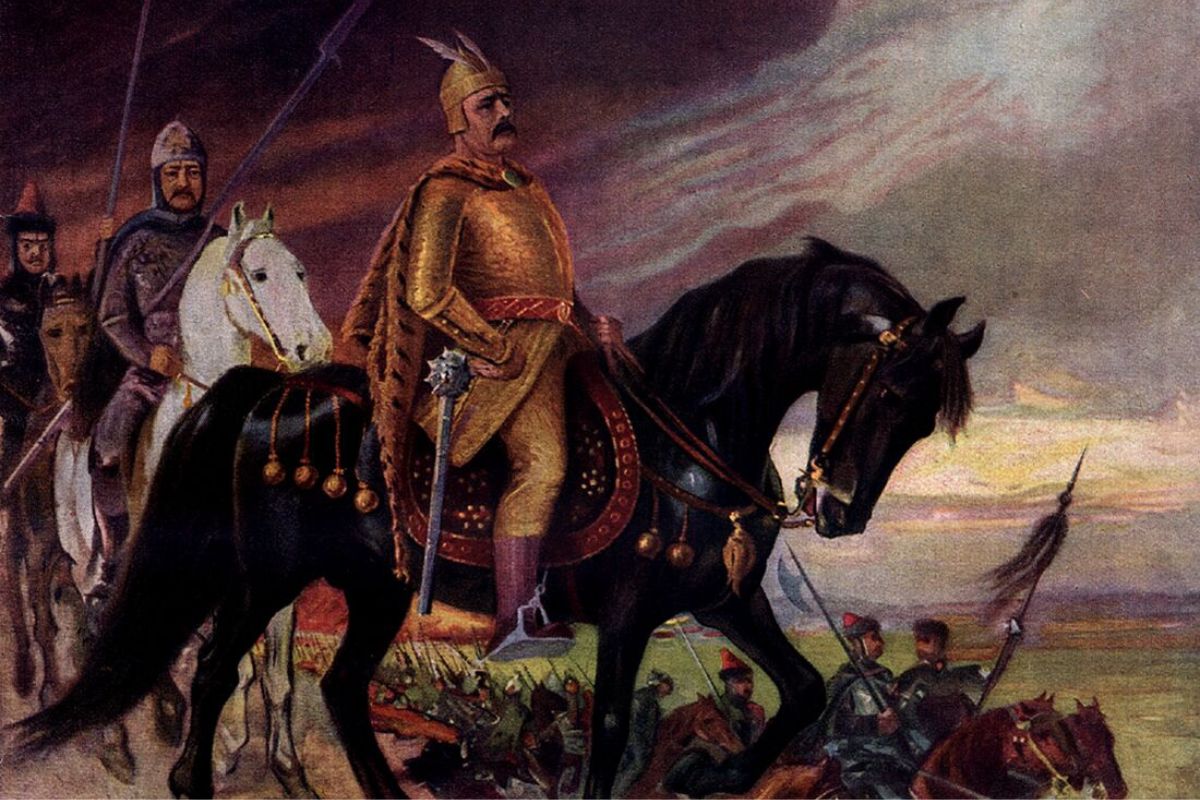
Khan Krum, a name that echoes through the annals of history, was a formidable ruler of the First Bulgarian Empire. His reign, marked by strategic brilliance and fierce battles, left an indelible mark on the medieval world. Who was Khan Krum, and what made his wars so significant? This blog post dives into 20 intriguing facts about Khan Krum's wars, shedding light on his military tactics, key battles, and the lasting impact of his conquests. From his legendary victory over the Byzantine Empire to his innovative use of psychological warfare, Krum's campaigns were nothing short of extraordinary. Buckle up as we journey through the fascinating world of Khan Krum's military exploits!
Key Takeaways:
- Khan Krum, the Bulgarian leader, used innovative tactics and strategic brilliance to expand his empire through victorious wars, leaving a lasting impact on Southeast Europe's history and culture.
- Krum's military genius and legacy as a national hero continue to inspire admiration and study, shaping the region's history and celebrating his strength and resilience.
Khan Krum: The Fearsome Bulgarian Leader
Khan Krum, a ruler of the First Bulgarian Empire, is known for his fierce military campaigns and strategic prowess. His wars left a significant mark on the history of Southeast Europe. Here are some fascinating facts about his military exploits.
-
Khan Krum ruled from 803 to 814 AD. His reign was marked by numerous military campaigns that expanded the Bulgarian Empire.
-
He is best known for his victory over the Byzantine Empire. In 811 AD, Krum's forces defeated the Byzantine Emperor Nikephoros I at the Battle of Pliska.
-
The Battle of Pliska was a turning point. Krum's victory at Pliska not only secured his power but also demonstrated the strength of the Bulgarian military.
-
Krum used psychological warfare. After the Battle of Pliska, he had Nikephoros I's skull lined with silver and used it as a drinking cup to intimidate his enemies.
-
He fortified his empire. Krum built a series of fortresses and defensive structures to protect his territory from invasions.
The Battle of Versinikia
The Battle of Versinikia in 813 AD was another significant conflict during Krum's reign. This battle further solidified his reputation as a formidable military leader.
-
Krum's forces defeated the Byzantines again. At Versinikia, Krum's army crushed the Byzantine forces led by Emperor Michael I Rangabe.
-
The battle showcased Krum's tactical genius. He used strategic positioning and surprise attacks to outmaneuver the Byzantine army.
-
Krum's victory led to the capture of Adrianople. After the battle, Krum's forces captured the important city of Adrianople, further expanding his empire.
-
He negotiated with the Byzantines. Despite his military success, Krum was also a shrewd diplomat and negotiated peace treaties when it suited his interests.
-
Krum's wars had lasting impacts. His victories and territorial expansions significantly influenced the political landscape of Southeast Europe.
Krum's Legacy and Military Innovations
Khan Krum's military campaigns were not just about brute force; they also involved innovative strategies and tactics that left a lasting legacy.
-
Krum implemented new military tactics. He introduced the use of heavy cavalry and siege engines in his campaigns.
-
He was a master of logistics. Krum ensured his armies were well-supplied and could move quickly across vast distances.
-
Krum's laws strengthened his empire. He implemented legal reforms that helped maintain order and stability within his expanding territories.
-
He promoted unity among his people. Krum fostered a sense of national identity and unity among the diverse groups within his empire.
-
Krum's reign marked the peak of the First Bulgarian Empire. His military successes and administrative reforms laid the foundation for future prosperity.
The End of Krum's Reign
Khan Krum's reign came to an abrupt end, but his legacy continued to influence the region for years to come.
-
Krum died in 814 AD. His death marked the end of an era of significant military expansion for the Bulgarian Empire.
-
His successors continued his policies. Krum's successors built on his military and administrative achievements, further strengthening the empire.
-
Krum's wars are still studied today. Historians and military strategists continue to analyze Krum's campaigns for their innovative tactics and strategic brilliance.
-
Krum is remembered as a national hero. In Bulgaria, Krum is celebrated as a national hero and a symbol of strength and resilience.
-
Krum's legacy lives on. The impact of Krum's wars and his contributions to the Bulgarian Empire are still felt in the region's history and culture.
The Legacy of Khan Krum's Wars
Khan Krum's wars left a lasting impact on the medieval world. His military campaigns expanded the Bulgarian Empire, securing its place as a formidable power. Krum's innovative tactics, like using psychological warfare, set him apart from other leaders of his time. His famous victory at the Battle of Pliska against the Byzantine Empire showcased his strategic brilliance.
Beyond the battlefield, Krum's reign brought significant legal reforms, strengthening the internal structure of his empire. His laws aimed to create a more just society, reflecting his vision of a well-ordered state. The legacy of Khan Krum's wars and reforms continued to influence Bulgarian history long after his death.
Understanding these facts about Khan Krum's wars provides insight into the complexities of medieval warfare and governance. His legacy remains a testament to the enduring power of strategic leadership and visionary reforms.
Frequently Asked Questions
Was this page helpful?
Our commitment to delivering trustworthy and engaging content is at the heart of what we do. Each fact on our site is contributed by real users like you, bringing a wealth of diverse insights and information. To ensure the highest standards of accuracy and reliability, our dedicated editors meticulously review each submission. This process guarantees that the facts we share are not only fascinating but also credible. Trust in our commitment to quality and authenticity as you explore and learn with us.
